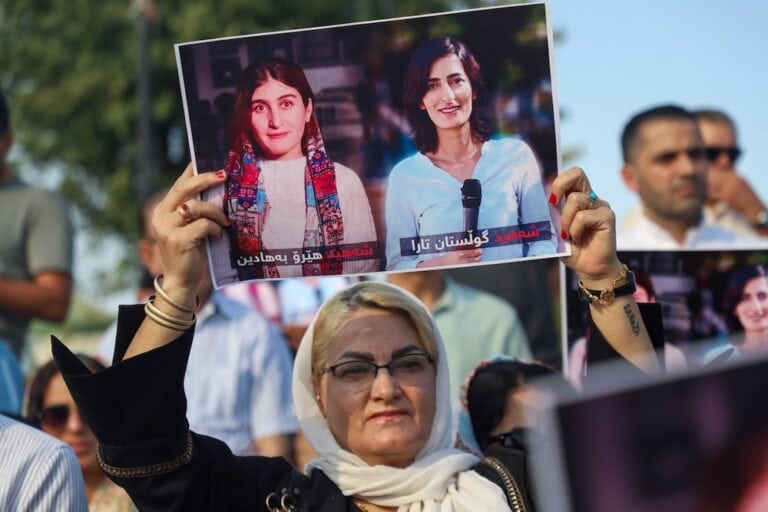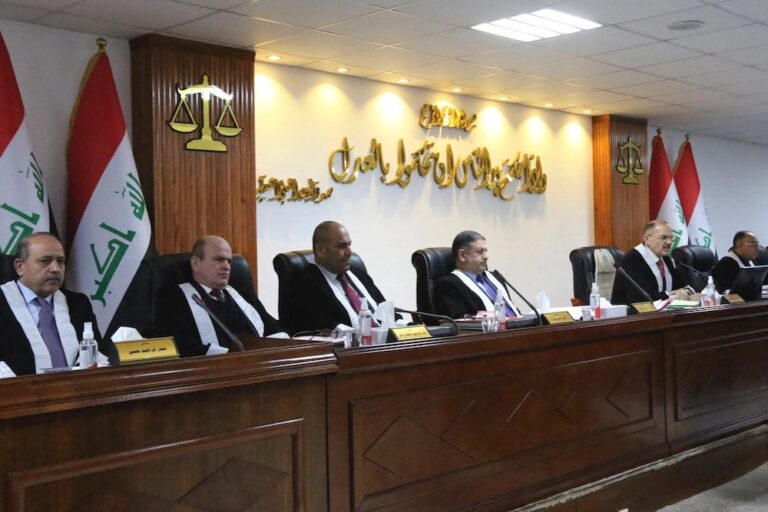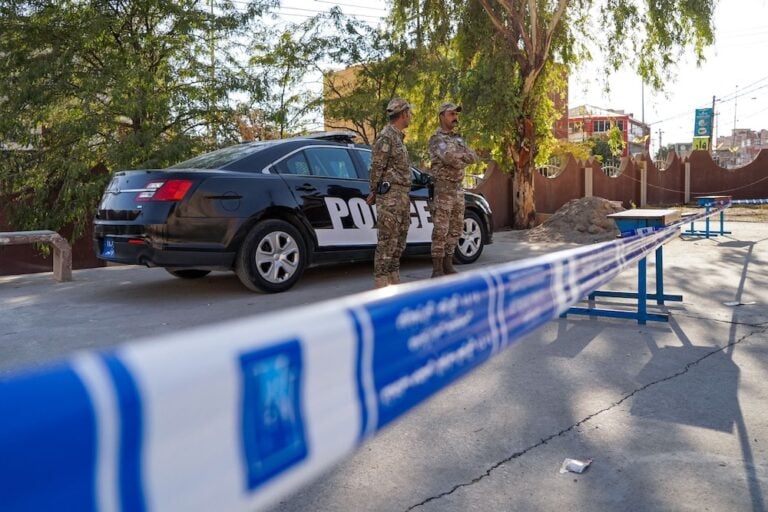Press freedom violations and violence against independent journalists have increased since the regional elections.
(RSF/IFEX) – Reporters Without Borders has observed an increase in press freedom violations and violence against independent journalists in Iraqi Kurdistan since the 25 July 2009 regional elections. Both of the political parties that control the region have had a hand in these violations, of which there have been several recent cases.
The most recent is that of freelance journalist Sabah Ali Qaraman, the target of a kidnap attempt on 19 January 2010. “I was returning home by car with a friend at about 5 p.m. when I saw a grey jeep following us with four hooded gunmen aboard,” he told Reporters Without Borders.
“I recognised the driver, a long-time member of the PUK,” he continued, referring to the Patriotic Union of Kurdistan, the party headed by Iraqi President Jalal Talabani. “When they got out of their jeep, I realised they wanted to kidnap me. We managed to elude them and we fled.”
Aged 28 and living in the district of Kifri, 200 km southeast of Sulaimaniyah, Qaraman has often criticised both the PUK and the Kurdish Democratic Party (KDP), led by Massoud Barzani. “I know they want to kill me because my articles are very critical of the PUK, especially as regards corruption,” he said. “They want to silence me but I will refuse until my dying breath to make any changes to the way I work or the way I speak out and criticise. The corrupt political system that exists in Kurdistan must change.”
Following the attempted abduction, Qaraman filed an official complaint against the long-time PUK member, Umer Nuri Darwesh. The police said they would carry out an investigation but Darwesh has not been arrested.
Ihsan Mullah Fuad, a journalist who works for the independent Kurdish newspaper “Awene” (Mirror), was arrested by the police in Kifri while researching a story for his newspaper. “I phoned the electricity company in an attempt to get additional information but the head of the electricity company refused to answer my questions,” he said.
“I sent him a message saying I was a journalist and that I had questions to put to him for an investigative piece, but he filed a complaint and the police came to arrest me (. . .) They treated me as if I was a terrorist, although Kurdistan’s press law says you cannot arrest journalists. In court, a police officer said he thought my articles about police human rights violations were regrettable.”
Anwar Bazgr of the Union of Journalists confirmed that the press law now in force in Kurdistan bans arresting and handcuffing journalists. Fuad was released after the head of the electricity company withdrew his complaint.
Qadr Nadr, a freelance journalist and columnist for news websites and newspapers in Kurdistan, was accosted and threatened by members of the PUK’s Swedish section while participating in a seminar in Stockholm on 17 January. He told Reporters Without Borders he has filed a complaint against his assailants.
Twelve weeks ago, on 29 October, Nabaz Goran, the editor of the independent Kurdish-language fortnightly “Jihan” (World), was physically attacked in Erbil.


